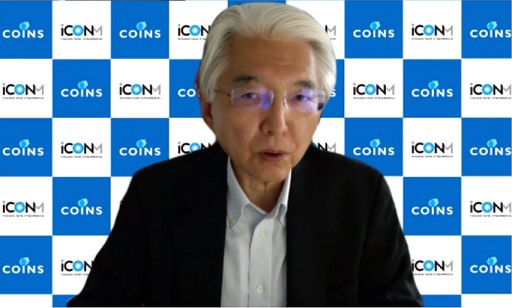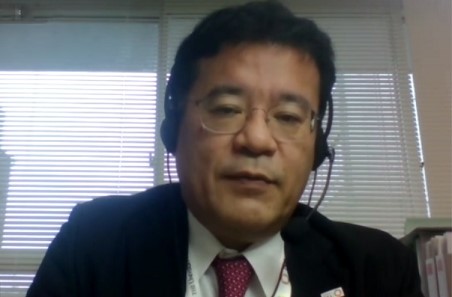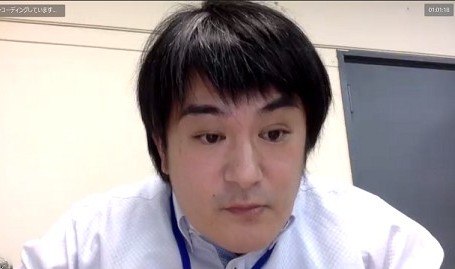
Designed and synthesized smart nanomachine® that efficiently delivers antibody drugs into the brain and succeeded in demonstrating the suppression of amyloid ƒÀ aggregation in brain parenchyma at lower doses in Alzheimer-type dementia model mice.




Dr. Kazunori Kataoka, Director General, iCONM, Dr. Kouhei Tsumoto, Professor, University of Tokyo Dr. Yasutaka Anraku, Visiting Scientist, iCONM / Project Associate Professor, The University of Tokyo, Dr. Takanori Yokota, Professor, Tokyo Medical and Dental University and their research group designed and synthesized smart nanomachine® that efficiently deliver antibody drugs into the brain and succeeded in demonstrating the suppression of amyloid ƒÀ aggregation in brain parenchyma at lower doses in Alzheimer-type dementia model mice, and a joint press conference was held.
The research results, authored by Dr. Xie Jinbing, iCONM and Dr. Daniel Gonzalez-Carter, iCONM, were published in ACS Nano (IF = 13.903), a journal published by the American Chemical Society (ACS).
At the press briefing held online on Wednesday, May 20, Dr. Kazunori Kataoka, Director General, iCONM, Dr. Kouhei Tsumoto, Professor, Department of Bioengineering, Graduate School of Engineering, The University of Tokyo, Dr. Yasutaka Anraku, Project Associate Professor, Department of Bioengineering, Graduate School of Engineering, The University of Tokyo Department of Bioengineering, and Dr. Takanori Yokota, Professor, Department of Neurology and Neurological Science, Tokyo Medical and Dental University had a deep discussions with journalists from science section of the general paper and bio journal magazines.
This research is based on the BBB crossing smart nanomachines which is the basic technology created by COINS which is the one of the projects of Center of Innovation (COI) Japan Science and Technology Agency (JST) and was applied in R&D in Strategic Research Program for Brain Sciences (SRPBS) of Japan Agency for Medical Research and Development (AMED).





